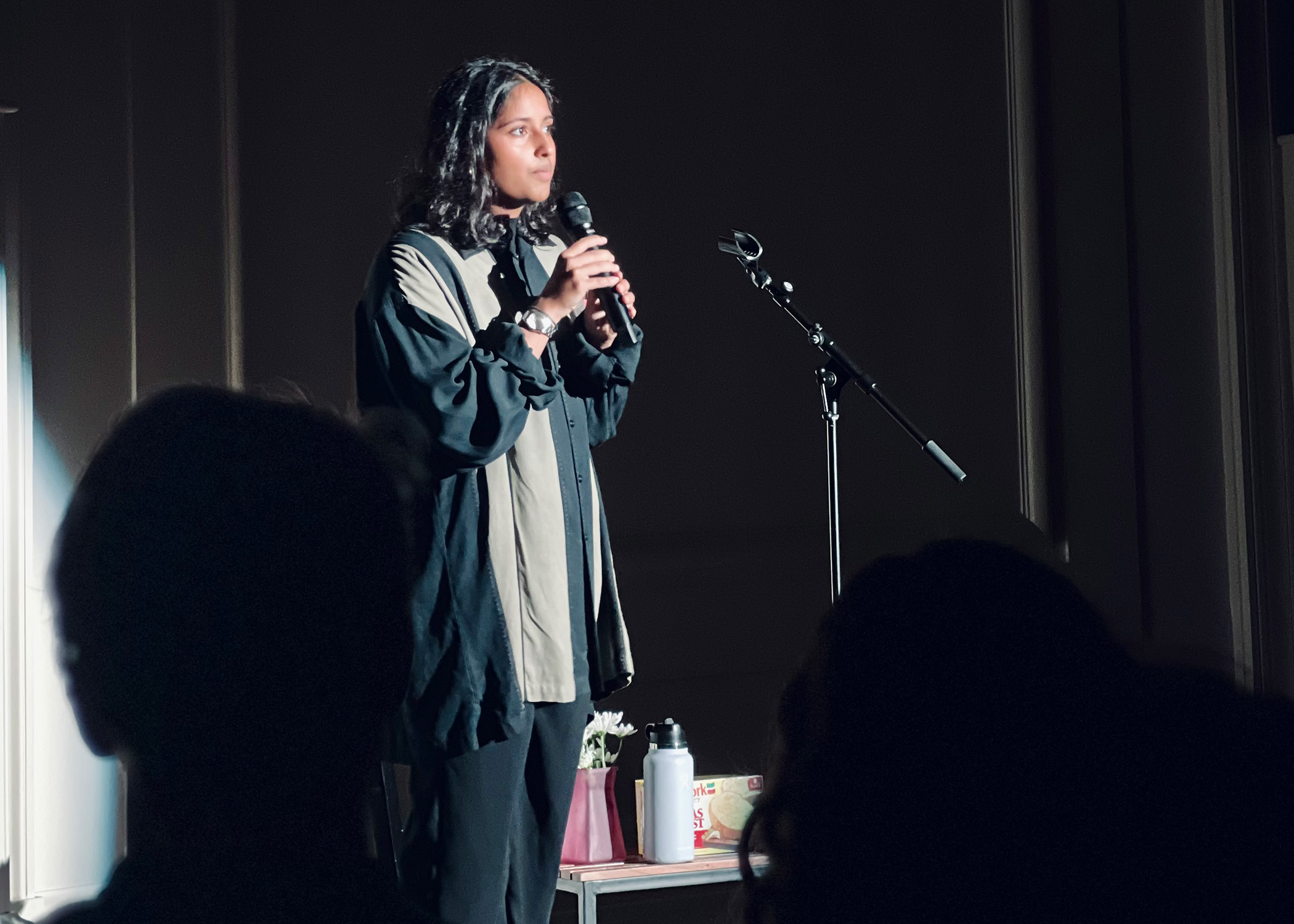The hue of The Dome is a soft rosé, the atmosphere alight with the excited nonsensical chatter of students, as they eagerly wait for the show’s commencement. Suddenly, the gentle light is replaced by darkness. The chatter ceases. Here, in The Dome at Yale Schwarzman Center, and from my stage-right seating, I see a spotlight illuminate a young Indian woman with medium length, wavy black hair. She is standing center stage. She is dressed in a comedically oversized bowling shirt; the multihued grey, brown, and black stripped button down, is buttoned up. She has a microphone in hand. Then taking a deep breath and releasing it, begins “My parents met in the 90s . . .”
I watch, laugh, and reflect intently as Yale undergraduate student Tara Bhat ’25 comically catalogues stories of migration and being raised as a brown kid in rural America. In her one hour stand up special “My Name Is Still Tara Bhat.” Tara’s wry, sarcastic sense of humor is akin to Gen Z, refreshing in the sense of its relatability. Laughter steadily ripples through the auditorium as she speaks of first crushes, competitive older siblings, and college experiences. But within the comedic narrative is a motif that every first generation American knows all too well. It is a story of the rediscovery of one’s cultural identity and a reclamation of one’s given name, honoring the ones who came before us and the parents that so proudly named us.
I listen intently as Tara weaves this narrative through expertly conceived jokes, revealing her meaning gradually rather than all at once. In this format she reveals that after 18 years of being known to the world as Tara, so often mispronounced “terra bat,” finally here at Yale College she reclaims her given name Tara, which is correctly pronounced - “thah-rah butt,” with Tara originating from the Sanskrit word for “star.” No matter what others may have thought, she is still Tara Bhat.
Tara’s narrative resonates in the very soul of this listener and as I sit in the audience, I begin to recall my own story.
